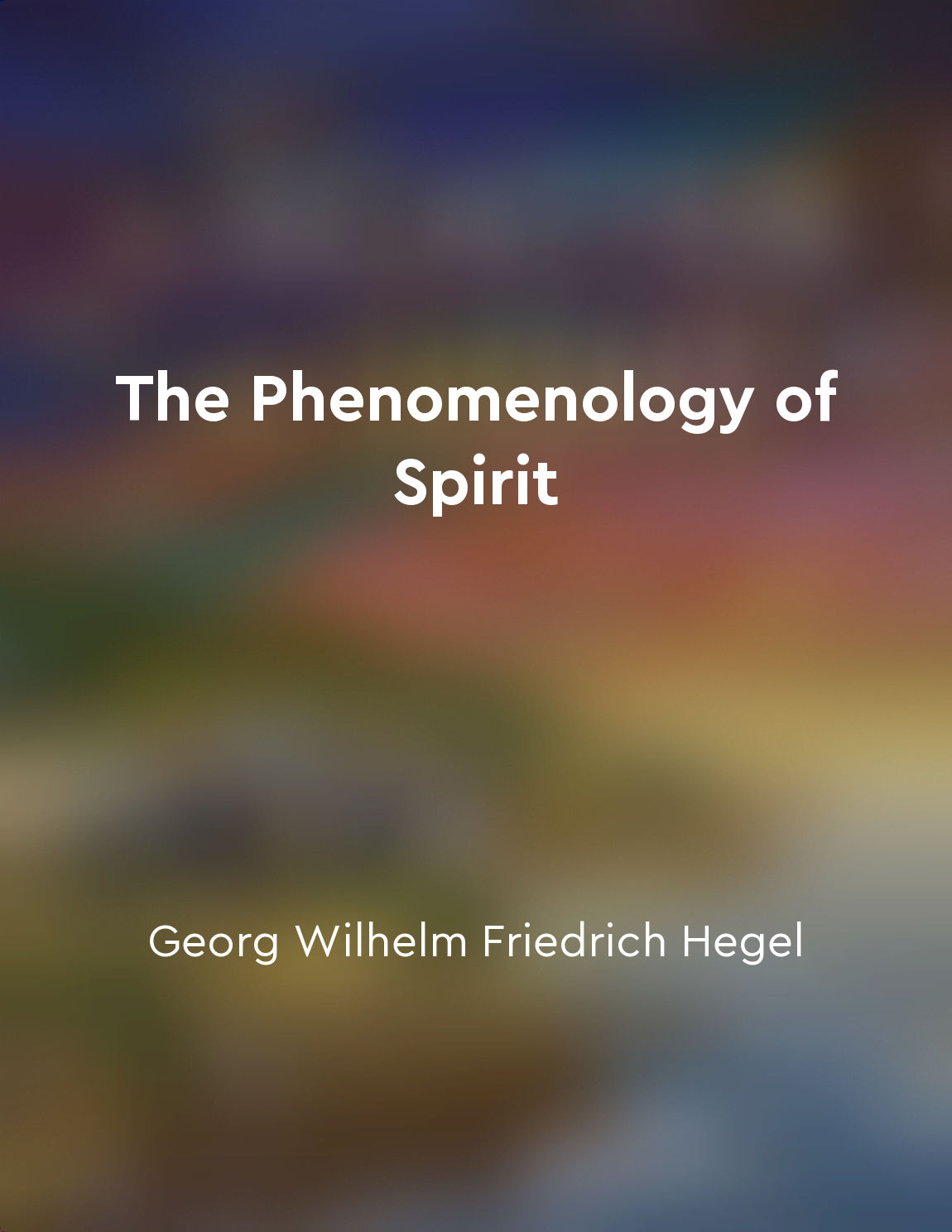Individuality and universality from "summary" of The Phenomenology of Spirit by Georg Wilhelm Friedrich Hegel
Individuality and universality are two essential aspects of human existence that are intricately intertwined in Hegel's philosophy. According to Hegel, individuality refers to the unique and particular characteristics that distinguish one person from another. It encompasses the personal experiences, thoughts, emotions, and actions that make each individual distinct and separate from others. On the other hand, universality refers to the shared and common aspects of human life that connect individuals to one another in a broader sense. It encompasses the universal principles, values, norms, and ideals that unite individuals as members of a collective whole.
Hegel argues that individuality and universality are not mutually exclusive but rather complementary and interdependent. While each person is a unique and autonomous being with their own subjective perspective and identity, they are also inherently connected to others through their participation in the universal human experience. This duality of individuality and universality reflects the complex and dynamic nature of human existence, where individuals simultaneously assert their own selfhood while recognizing their interconnectedness with others.
Moreover, Hegel suggests that the relationship between individuality and universality is dialectical in nature, meaning that it involves a process of continual development, transformation, and reconciliation. Individuals strive to assert their individuality by expressing their unique thoughts, desires, and actions, yet they also seek to connect with others by participating in shared cultural, social, and political institutions. This dialectical movement between individuality and universality gives rise to a rich and diverse tapestry of human experiences that is both pluralistic and unified.
In Hegel's view, the synthesis of individuality and universality occurs through the realization of freedom, which he defines as the capacity for self-determination and self-realization. True freedom, according to Hegel, is not the mere absence of external constraints or limitations but rather the ability to actualize one's own potential and to contribute meaningfully to the common good. By embracing both their individuality and universality, individuals can fulfill their inherent freedom and achieve a harmonious balance between self-assertion and social integration.Hegel's concept of individuality and universality offers a profound insight into the complex and multifaceted nature of human identity. By recognizing the interplay between the particular and the universal dimensions of human existence, individuals can cultivate a deeper understanding of themselves and their place in the world. Hegel's philosophy invites us to embrace our individuality while also embracing our shared humanity, thereby fostering a more inclusive, compassionate, and

Open in app
The road to your goals is in your pocket! Download the Oter App to continue reading your Microbooks from anywhere, anytime.


